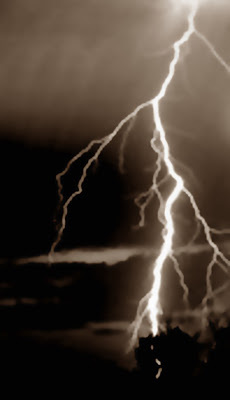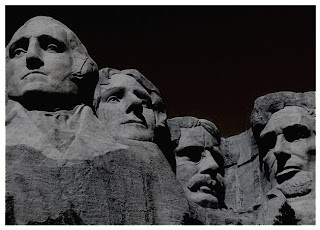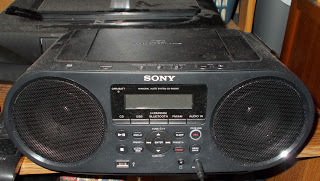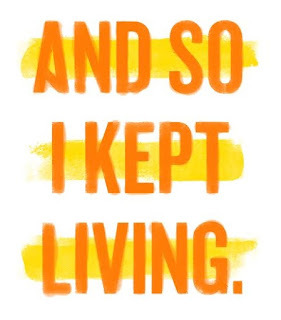John Janaro's Blog, page 226
October 14, 2016
Do Ugly Times Make Us Ugly People?
 These are some hard days for Americans. If you live in the USA, you know what I'm talking about. If you don't live here, you probably still know. Our politics has descended to a level of ugly that is dark and strange even for our usual presidential elections. Ugly.
These are some hard days for Americans. If you live in the USA, you know what I'm talking about. If you don't live here, you probably still know. Our politics has descended to a level of ugly that is dark and strange even for our usual presidential elections. Ugly.Ugly is never good. It corrupts the end and the means of any human endeavor.
People have passionate convictions about what they think must be done in the present circumstances. That's fine. Passionate convictions make for a good dialogue, a useful dialogue where we may be able to discover the deeper reasons for our positions, where we actually agree and where we disagree, and why.
Dialogue is based on mutual esteem for one another. This esteem is not merely a sentimental "being nice" -- it can be expressed in many forms. It can be feisty, provocative, edgy, and frank, as well as diplomatic, courteous, careful, irenic, and many other things. It has room for a fair measure of humor and even a dash of sarcasm, especially when everyone in the discussion has a taste for spice. Dialogue should be as reasonable as we can muster, without arrogance, seeking understanding, and patient with all our slow plodding ways of knowing. It should always be vigorous, honest, magnanimous of mind and heart, and humble. And it should give everyone space to be human--which (generally) entails being somewhat intelligent and somewhat ignorant, diverse in temperament, possessed of dignity and worthy of respect, sometimes articulate, often awkward, capable of learning but inclined to misunderstanding, occasionally brilliant, always peculiar.
Fruitful dialogue encompasses all these things. But it should never be ugly.
None of us is perfect at this business, and we will be messy about it in different directions, depending on our temperament, emotional state, fears, weaknesses, neurobiological quirks, and so on. Indeed, we can get very messy about it.
Some among us lose our perspective, or try to berate points beyond what the circumstances of a discussion (or the limits of a particular communications media platform) can bear. Others are largely silent. Perhaps a few of these latter people find silence to be the better part of wisdom. Many are silent because they are afraid to speak, or because they don't know what to say, or because they are confused. Maybe they simply don't want to talk about it, and they don't want to tell us why they don't want to talk about it. Dialogue cannot be forced. People's freedom must be respected.
Some are just too sick. They don't have the physical, mental, and/or emotional resources to invest in an intense conversation about what to do in the presidential election. They have to focus the few resources they have on the most fundamental tasks of life and relationships. Be kind to them. They especially need it now.
 Presidents of the past in stony consternationHere in America we have an ugly election, and different features of the ugliness stand out in different ways. It looms over all of us, and we still have to live our days together, bump into one another, interact in the nitty-gritty of one another's lives. Trying to ignore the whole ugly thing is very hard and usually artificial. It comes up in conversation, in references. It weighs down our concerns. Things can get messy. None of us should think that we are superior or somehow exempt from the messiness of being human. We may find ourselves fighting with one another. It happens.
Presidents of the past in stony consternationHere in America we have an ugly election, and different features of the ugliness stand out in different ways. It looms over all of us, and we still have to live our days together, bump into one another, interact in the nitty-gritty of one another's lives. Trying to ignore the whole ugly thing is very hard and usually artificial. It comes up in conversation, in references. It weighs down our concerns. Things can get messy. None of us should think that we are superior or somehow exempt from the messiness of being human. We may find ourselves fighting with one another. It happens.But, please, let's not be ugly to one another.
Realism forces us to face the ugliness associated with political organizations and the people who aspire to be the leaders of the United States of America. Ugliness! But what is to be done about the ugly monster that approaches us? It is a passionate question. And one thing that is very clear is that good people disagree about what is still possible, what can or should be done before, on, or after November 8th. Decent, trustworthy people have different convictions, or opinions, or hunches, or degrees of confusion or frustration about what is to be done. That will probably continue and extend to different points after election day.
We hope and pray that we are among the "good, decent, trustworthy people." Perhaps this is not something that we should simply take for granted. How much are we ourselves affected by the ugliness that we face? How much is the present Big Ugliness the reflection, the consequence, the fruit of our own little narrow nasty ugliness, accumulated and perhaps hidden and strangely cherished in our hearts? I know these are questions I must ask myself. It won't hurt any of us to undergo a serious and honest examination of conscience, without scrupulosity but with realism.
After all, our hope is not grounded in our own ability to keep ourselves from becoming ugly. Our hope is grounded and sustained by an Inexhaustible Mercy.
And in any case we will still get messy. There will continue to be arguments. But let's not be ugly to one another. Let's resist the great temptation that tries to convince us that the only way to destroy a monster is to become another monster. We all know this is wrong, but it still exercises a deep practical attraction on our human weakness, our inner dysfunctionality, our frustrations, fears, and propensity for violence.
 It's worth noting a few considerations that might be helpful for us.
It's worth noting a few considerations that might be helpful for us.When we fight with one another verbally, let's refrain from personal insults, from jumping to nefarious conclusions about one another's motives, and from attacking one another's basic human dignity. Let's try to banish such things even from our thoughts insofar as we have the awareness and the capacity to do so. This is very important.
But this is also very important: we all know that some people are more inclined by temperament to be actively aggressive. Thank God for these people; they are the ones who get things done! But they are also tempted (in various ways) to be bossy, overbearing, or too quick to use words without thinking. The better we know these forceful, dynamic, aggressive people, the more aware we are of their qualities and weaknesses.
For such people, this ugly season is especially difficult to bear.
Let's not, therefore, fall into the sneaky trap of passive-aggressiveness. Now, especially, is not the time to bait these friends to an ill-considered expression of anger and frustration so that we can secretly relish what we fancy is our own phlegmatic superiority. No! This is all the more ugly for its proud disguise.
Spit out the ugly thing!
Yes, we're human. Let's talk at times and in places where conversation can be useful. Let's try to be generous toward one another in our style of expression. Let's listen to one another. Do we end up arguing? Fighting? Let's at least do it like brothers and sisters.
Because that is who we are.
We are brothers and sisters in a good family. It's tumultuous and dramatic and messy, because we are not a bunch of robots. We are human beings, children of God called to "grow up" together in this world, in this life we share. We grow by loving one another, and some of us are too loud, others too taciturn, or too smug, or too hesitant, or too self-assured, or too rosy, or too gloomy, or too... whatever!
And now we are in an ugly place, and we have to help one another get through it. But let's not forget our real home, or the reason why we are together.
Published on October 14, 2016 20:41
October 12, 2016
The Person and the Art of Compassion
 Most people want to be compassionate. Anything, therefore, that contributes to their practical understanding of the suffering of others has interest and value.
Most people want to be compassionate. Anything, therefore, that contributes to their practical understanding of the suffering of others has interest and value.We do need to learn how to build one another up, to share one another's burdens. That's why it's important to listen to one another's stories and to tell our own.
There is also much to learn from the accumulated wisdom of older people and the experience of professional caregivers. We will find many common themes that can give us a broad outline of the "art" of compassion and the ways of expressing and living empathy and solidarity.
But no amount of knowledge or experience can give us a guaranteed "formula" for approaching human suffering and loving another human person perfectly, without mistakes. True compassion is always personal, and the only way to really learn it is in-relationship-with-the-particular-person, by living that precise relationship with patience and persistence.
We need to stay with one another and keep loving one another concretely even though we will always make mistakes. We will always be weak; we will always fall short in love, and we will often hurt one another. We must try as hard as we can and learn as much as we can to grapple with this problem, but we will never eradicate it entirely.
Only Jesus solves it, but he doesn't solve it by magic. He works in us through real life, with our good intentions, our weakness, our efforts to learn, our commitment to one another as persons, and the forgiveness, perseverance, hope, and compassion for one another that His Spirit engenders within us.
Published on October 12, 2016 13:00
October 11, 2016
Saint John XXIII
October 11: Pope Saint John XXIII.
Saint John XXIII was the pope when I was born, and--in addition to John the Baptist--I was also named after him.
On October 11, 1962, less than three months before I was born, John XXIII formally opened the Second Vatican Council.

Saint John XXIII was the pope when I was born, and--in addition to John the Baptist--I was also named after him.
On October 11, 1962, less than three months before I was born, John XXIII formally opened the Second Vatican Council.

Published on October 11, 2016 08:19
October 9, 2016
Contemporary Music and its "God-Haunted" Spaces
 Here is the second part of some continuing (provisional and incomplete) reflections on music.
Here is the second part of some continuing (provisional and incomplete) reflections on music.
Artists can debase their talents by enslaving themselves to projects that are unworthy of the dignity of the human person. Great technical skill can be used to produce ideological propaganda, anarchic degradation, and/or the manipulation of human perceptions and appetites. This is a significant problem in the presentation, context, and lyrics of so many popular songs and indeed of the overwhelmingly crass, artificial, cheap glittering realm of the contemporary "music industry."
How much of what we hear and see today in music and performance is hedonistic, grandiose, superficial, and obsessed with sexual and violent imagery? This stuff does us no good, and it's something we certainly want to protect our children from. But we cannot merely reject--in a negative, moralistic way--all contemporary music, which is so diverse and changing, and which draws upon so many different facets of the human experience we all share in common in our world.
Insofar as we are human, we live in the context of a culture that we cannot simply escape from. Rather, what we need above all is education--for ourselves and our children--in the perception and judgment of what is truly worthy of human life, human purposes, and human destiny.
It is important, therefore, to have an intelligent and attentive aesthetic sensibility toward the very large and variegated world of mainstream music, not only to filter out the bad stuff but also to be edified by so much real human expression found therein. We need particular discernment to recognize the "God-haunted" spaces that echo through some of this music: the pain, the questions, and the gratuitous vitality that struggle to be expressed over a wide range of styles and forms.
Indeed, we often find these elements in places we would not think to look. The restless searching and the cry of the human heart don't necessarily stand out "on the surface," or in every aspect of a song, recording, video or concert mass-marketed as entertainment. But there can be a drama, a frustration, a stubborn hope, and an obscure but intense longing for God that come through even along with the spectacle and the excesses of these artists and their performances. These things push to break through in the midst of so many distorted and misdirected expressions.
We must learn to perceive and to discover and, according to our particular circumstances, to foster the true elements of the arts and music of our time.
This doesn't mean we should just expose ourselves to entertainment media that are harmful to us, on the pretext that we might be able to find something of value. We need guidance and we need to help one another on an educative path that takes into account our relative strengths and weaknesses and maturity as well as the dysfunctionality of our fallen human condition.
 There is no place for presumption here. Rather we need to do this together, with accountability, drawing upon the grace of Jesus in his Church, through prayer and the sacraments, in the ardor of Christian love, sustained by dependence on the Holy Spirit and the teaching and guidance of the Church.
There is no place for presumption here. Rather we need to do this together, with accountability, drawing upon the grace of Jesus in his Church, through prayer and the sacraments, in the ardor of Christian love, sustained by dependence on the Holy Spirit and the teaching and guidance of the Church.This is a work of prudence and temperance and all the Christian and human virtues by which we are formed in Christ. I don't intend to propose here any kind of systematic method for engaging in this work. I can't say I know all the possibilities or all the cautions that must be observed. I need help here as much as anyone else. Many of us play and/or listen to contemporary music already, and would only benefit by helping one another to carry out a more attentive work of judgment and appreciation. What I also want to emphasize, however, is that if it is rightly carried out, this work will discover more that we expect. It will be a work that will surprise us.
This is because the inescapable human need for a relationship with reality in all its authentic fullness--with truth, goodness, beauty, justice, love, happiness--is ultimately a need for God whether or not it is acknowledged or recognized as such. Insofar as a work of art genuinely embodies a creative intuition of the fundamental connection between human existence and an infinite fulfillment--a creative and constructive intuition that grasps the essential human drama and is not reduced to manipulation, distraction, or cloying spiritual suffocation--it will contain, however obscurely, the mark of the human longing for God in its mysterious and sometimes dark beauty.
Aesthetic sensibility is not simply the logical application of some theory. Informed by truth and the experience of objective reality, it also entails a practical perception in peculiar circumstances. Contemporary music has and continues to give us genuine works of art: musical compositions, songs, recordings, and live productions. Even (indeed especially) in a secularized context, we can find signs of the depths of the human heart that can only be filled by God. Lyrics that don't mention God explicitly may still articulate the heart that searches for Him. The energy, the engagement, sometimes the suffering or sadness expressed, or the way the musician or singer pours his or herself out in performance--these things may indicate the longing for the unknown God or the God perhaps obscured but mysteriously sought, the wounds exposed that only He can heal.
Music is a powerful force. Contemporary music is often a force that drags people down, but it also can draw them up. In the increasingly desolate human environment in which we live, we must discern and value the things that draw us up--and be prepared to find them in some unexpected places.
Published on October 09, 2016 20:30
October 4, 2016
Saint Francis: The Abundance of Love

"My Lord Jesus Christ,
two graces I beg of you before I die:
the first is that in my lifetime I may feel,
in my soul and in my body,
as far as possible, that sorrow which you,
sweet Jesus,
endured in the hour of your bitter passion;
the second is that I may feel in my heart,
as far as possible, that abundance of love
with which you, Son of God, were inflamed,
so as willingly to endure so great a passion
for us sinners.
I beseech you, O Lord,
that the fiery and sweet strength of your love
may absorb my soul
from all things that are under heaven,
that I may die for love of your love
as you deigned to die for love of my love."
~Saint Francis of Assisi

Published on October 04, 2016 14:29
October 3, 2016
Contemporary Music: Industry or Community?
 I have given attention for many years to contemporary music. This phrase is perhaps too broad to have more than a vague meaning. Much of this music involves highly diverse variations and styles. Yet there are some reasons why all these different types of sonic craftsmanship find themselves under the same big tent.
I have given attention for many years to contemporary music. This phrase is perhaps too broad to have more than a vague meaning. Much of this music involves highly diverse variations and styles. Yet there are some reasons why all these different types of sonic craftsmanship find themselves under the same big tent.I have often struggled to identify the common elements that justify using the category "contemporary music" as something more than a merely temporal reference. One element, I think, is its usual creative vehicle: the electronic sound and rhythm ensemble, commonly known as the "band." (Yes, I am smiling and laughing at myself as I write these words --it seems rather nerdy to try to be so verbally complex about something like a band. But I am wearing my philosopher's cap at the moment.)
Contemporary music also straddles a line between three very difficult enterprises, art, entertainment, and business. The result is that its most successful practitioners are under enormous pressure to be simultaneously artists, celebrities, and producers of marketable consumer products. They must create, record, perform, and sell not only music and songs, but also their own peculiar attractiveness as individuals and as a group, or at least their capacity to grab the attention of paying customers.
This is a lot to expect from often young musicians, and it's not surprising that "the music industry" crushes many of them, or compounds their own problems and raises them to a gigantic scale. This results in many wildly unstable artists who are physically and emotionally exhausted, incapable of sustaining healthy relationships, reckless in their habits, and addicted to drugs or alcohol. Too often it results in a musical "product" that is a glitzy sham, an arrangement of tricks and cliches packaged to enthrall the public appetite for cheap stimulation of the senses, vulgar novelty, and--of course--sexual titillation, distraction, and even violence.
Yet I not only pay attention to a lot of contemporary music. I like some of it very much. I've played a fair bit of it as well on my guitar, in bands and jam sessions. It would be superficial and unfair to simply dismiss all contemporary music. There is a lot of very good music being made today, music which succeeds on different levels depending on what it aspires to achieve. Even some artists whose lives have been broken by the excesses of the celebrity lifestyle have done remarkable work.
Contemporary music can be innovative, fascinating, fun, groundbreaking, exciting, and beautiful. Much of it is worthy of appreciation. In our time, I have new hope that artists will be able to break free from the dynamics of a merely functional "industry mentality" and express their creativity within a context that recognizes beauty as a value in itself.
Certainly artists need money and stuff, just like everybody else. Material wealth has its place, as do honor and appreciation. But the overarching motive of the musician must be to embody the creative intuition of beauty through the craft of shaping sound.
To ensure this, we need something more than a music industry. We need a music community.
[Stay tuned for more thoughts on music and the arts in upcoming posts.]
Published on October 03, 2016 20:30
October 1, 2016
Therese in the Arms of God
"It is enough to recognize one's nothingness and to abandon one's self like a child in the arms of God"
(Saint Therese of Lisieux).

(Saint Therese of Lisieux).

Published on October 01, 2016 15:04
September 30, 2016
Why Is It Worth It "To Keep Living"?
 The month of September is coming to an end. I know that various initiatives have been taken to raise awareness about suicide and its causes during what has been designated as World Suicide Prevention Month (particularly on the day of September 10).
The month of September is coming to an end. I know that various initiatives have been taken to raise awareness about suicide and its causes during what has been designated as World Suicide Prevention Month (particularly on the day of September 10).Our friends at TWLOHA ("To Write Love On Her Arms," see my blog post here) have a designated theme each year, and this September the theme has focused on people deciding to stay alive, deciding not to give up.
Mental illness can be a relentless scourge that afflicts a person for reasons beyond their control. We recognize that it can reduce personal responsibility to the point where many suicides are not deliberate and fully free choices of self-murder. From a subjective point of view, death by suicide often is a consequence of the actions of desperate, compulsive, severely depressed people. These people are afflicted by a complex but severe mental disability that hinders and distorts their perception of themselves and others, a disability with a significant neurobiological component that flares up and becomes crippling and degenerative because of negative experiences and the absence of medical treatment, adequate counseling, and/or basic human understanding and support.
Suicide prevention requires everyone to become more aware of the sufferings of people with depression and related illnesses. I have made an effort to share my own experiences with this (see, for example, my BOOK) and I think it is important to stress that the struggle to keep living is acute and ongoing in various ways and on different levels of severity for mentally ill people. For some people, staying alive is an invisible heroic achievement every day. Even those who are not facing such immediate and total danger, however, have peculiar hindrances that they struggle against as they try to move forward in life.
We all need to encourage and build up one another. Those who have been blessed with mental and emotional strength, however, have a special opportunity to share their gifts, to cultivate an active and affirmative support and service toward their afflicted brothers and sisters. Above all, we must all remember that the embrace of Jesus Christ brings an ultimate fulfillment to every aspect of our humanity, not by "solving" our human problems in some magic way, but by transforming us from within and making our gifts and our needs, our strengths and our weaknesses into paths toward communion. By the grace of the Holy Spirit, the compassionate and the vulnerable alike experience the mercy that renews all things, and gives hope in the midst of the most incomprehensible circumstances.
As I ponder this interplay of vitality and fragility in the circumstances of life, I am reminded of the ways in which love proves itself both in the magnanimity of its human reach and in the (apparent) weakness of its mysterious self-emptying, through which it passes beyond the experience and understanding of this present age so as to win the victory that endures forever.
It brings to my mind a young woman with an enormous heart, who was drawn so powerfully by Jesus Christ that she seemed to want to embrace the whole world. She had a joy that poured itself out in music and in a tireless enterprise of connecting with people by all the means she could find.
Our beloved Christina Grimmie had a human strength and a gift for communication and encouragement. She also knew that she belonged to Jesus, and that all the value of her strength and talent came from Him. She was a very real person, with flaws, sensitivities, problems, and failures like anyone else -- very much an earthen vessel that nevertheless carried the treasure of Christ's love in a manner that communicated something of that love's heroic stature.
Christina knew that His love could sustain the human heart, and thereby foster healing and bring consolation and strength to those who struggled to keep living. In April of 2014 she made a very short, spontaneous video that took its point of departure from eating disorders and self-harm issues but opened up from there. Anyone could articulate these kinds of statements on a video, of course, but what she expresses here has a palpable authenticity because it comes from within the context of her whole life as a daily risk, an availability to the people she met, a passion for Christ and her music and the people to whom she gave the gift of her music.
In this meme I designed from the video, the first panel summarizes a slightly longer discourse, but the other two panels are her exact words that she felt were so urgent, so significant for affirming the value of all the people who were touched by her music, and indeed of every human person who might watch it. The video is still up on her YouTube channel along with everything else, but here is my graphic summary.
It is something that strikes me very much.

Christina never tried to sell her faith. When she did mention Jesus, it was to affirm a conviction that couldn't be expressed without an explicit reference to Him. Her own love, in its source and its urgency, its value and its significance as a gift to others, was inseparable from His love.
It requires a certain kind of audacity to tell people to love themselves and recognize the beauty in themselves 'because Jesus loves you... and I love you.' It requires a certain kind of audacity to express and give ourselves in a way that says to our family, to our neighbors, to everyone we meet, that it is worth it to keep living 'because I love you.'
This is the kind of love that is not afraid to open its arms to anyone, that is not afraid to open its arms because it always has confidence in the One whom it seeks to embrace. Such confidence engenders a real courage, a real audacity that is more powerful than all the harm that human beings can inflict upon others and themselves, more powerful than the violence that tries so terribly to negate it, but that cannot prevail in the end.
The world needs this kind of audacity. The world needs this kind of love.
Published on September 30, 2016 20:55
September 29, 2016
A Cup of Java With JJ
Happy
National Coffee Day!
You can celebrate with me over on my YouTube channel. Learn what JJ considers the perfect cup of coffee, and check out his special cream pitcher.
Drink up!
You can celebrate with me over on my YouTube channel. Learn what JJ considers the perfect cup of coffee, and check out his special cream pitcher.
Drink up!
Published on September 29, 2016 20:00
September 28, 2016
God Never Stops Wanting Our Good

"There is no sin in which we may have fallen,
from which, with the grace of God,we cannot rise up again.There is never a person who can't be recovered;no one is unrecoverable, becauseGod never stops wanting our good, even when we sin!"
~Pope Francis
Published on September 28, 2016 18:28



